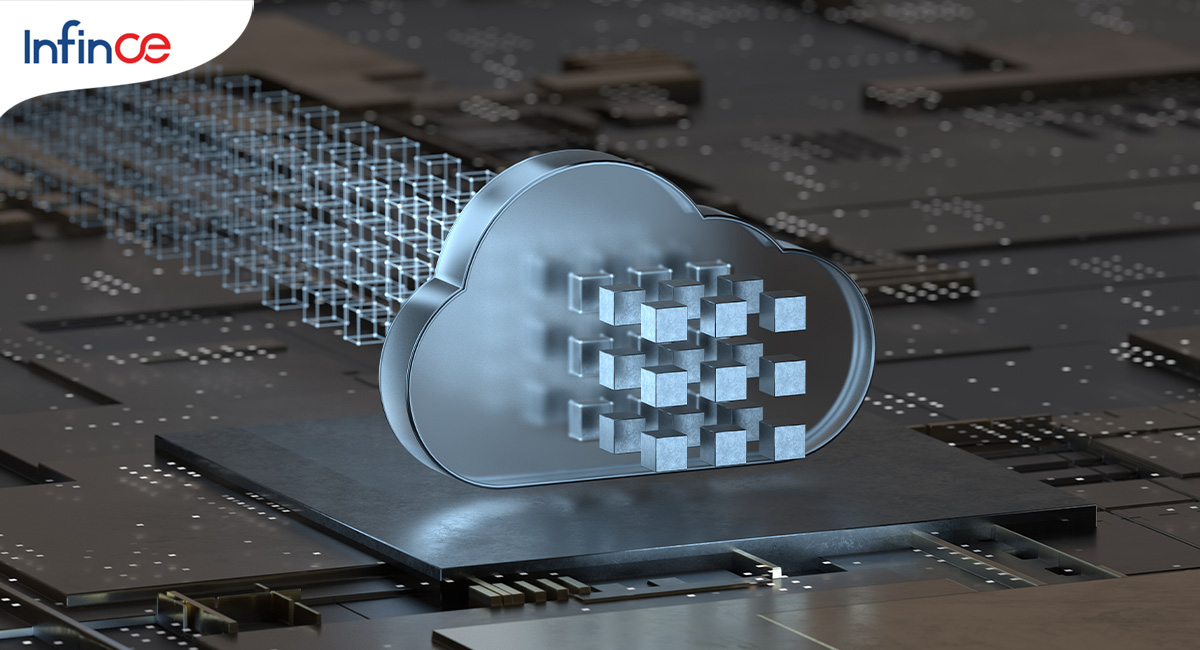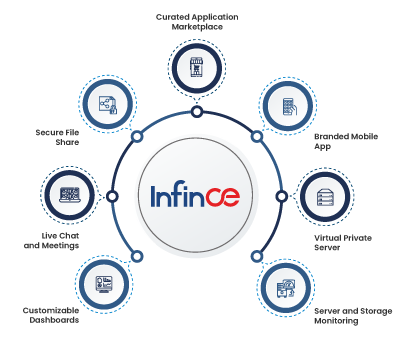Why is centralized IT important for businesses today?
The era of digital transformation has bridged the gap between SMBs and established business houses in terms of competence and customer experience. Today, SMBs have access to the same technology that bigger players have at a fraction of the cost. Thanks to the growth of SaaS applications that run on the cloud! With technology becoming a pivotal element in growth, the IT department within a business obviously requires more attention and focus from the senior leadership.
Every department will have its own requirements for modern digital platforms and as the business grows, there will be a rising challenge of delivering seamless technology services for every individual department. This calls for centralizing your IT administration for realizing the true power of technology-driven innovation.
Read more: 3 Strong Reasons for Your Business to Embrace Cloud-based IT Services
Here are 4 ways in which centralization of IT administration can fuel new levels of success for your business:
1. Influence IT productivity positively
When the IT organization within your business is decentralized based on departments or regions or different verticals, there will be a lot of chaos and rudimentary tasks that each team will have to repeatedly encounter. The same problem which plagued one department will continue to haunt another department even if the IT team of the first one had found a solution. The same rule applies for new feature or capability addition as the IT team of each business unit will have to reinvent the wheel every time.
When your IT administration is centralized, then this challenge is easily solved as there will be a centralized advisory and best practices recommendation panel that will propagate vital information such as fixes to common problems, guidelines for new feature additions, or provide features built for one business unit as a plug and play service for other units when they need it and much more.
2. Better Information Distribution
With more digital platforms being used across several verticals of your business, there is a need for a holistic view of customer data by different teams ranging such as sales, marketing, and operations. And these demands arise from different geographies as well. When there is a centralized IT organization that manages data storage and information dissemination, there is a more streamlined flow of information across the organization. All relevant stakeholders get access to the latest information needed be it through CRM or ERP or marketing automation systems.
Read more: 5 Benefits Of Having A Centralized Employee Dashboard In Your Business
3. Reduce the Cost of Operations
By centralizing and consolidating your IT infrastructure, there is a huge opportunity to reduce the cost of operations significantly. It will be easier to migrate your technology systems to the cloud and make it available for different departments on a demand basis.
This will further drive down costs without disrupting any services aided by these digital applications. Add to this the hardware costs and maintenance involved when there are multiple decentralized IT infrastructure components involved, it becomes clear that centralization of IT is a highly cost-effective option.
Also, when there are a centralized IT administration managing purchase and deployment of applications and services for various departments, they have a better negotiation prowess with software vendors due to bulkier purchase orders that can be placed together rather than smaller parcels for decentralized IT purchases.
4. Better Regulatory Compliance and Security
As more digital channels open for businesses to reach out to customers, there will be rising regulatory and security challenges that will tag alongside. Having a decentralized IT team will make it a complicated affair for ensuring compliance with all standard norms that are prescribed for handling customer data. Various departments ranging from sales to marketing and customer relationship will request access to sensitive customer information for decision making. If there isn’t a uniform policy for ensuring data integrity and secure information exchange, the smallest shortcoming from any department in handling data can lead to a disastrous outcome for the entire business.
Enforcing standard security and regulatory compliance policies will be easier when IT is centralized, and best practices and guidelines are uniformly managed by one team for all business units. For example, if your business operates in the healthcare domain, then the technology used by different teams need to have HIPAA compliance to handle sensitive patient information. In this case, the centralized team can vet and certify each application before they are rolled out to respective teams rather than entrusting the same to decentralized IT teams across departments as there will be more chances of missing out on important checklists.
Why centralized IT is important for future business growth?
Digital transformation is an imminent reality for any business as they must embrace for a future where customers are increasingly relying on digital interactions for their daily needs. As the IT team plays a key role in enabling this transformation, it is important to have a uniform and managed technology workstream across the entire organization. This is why the centralization of your IT organization is important for future business growth. Enabling your IT team to have a holistic control of your business’s digital infrastructure thus becomes a core pillar of successful digital transformation.
Read more: How InfinCE Transforms the Way Your Workforce Operates Today
InfinCE can become the foundation stone for this pillar by providing you a centralized technology platform to run your entire business operations and encompassing all digital capabilities. Get in touch with us to see how InfinCE can help transform your business’s digital outlook.







